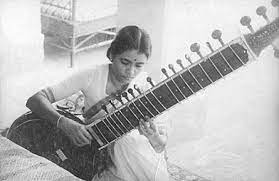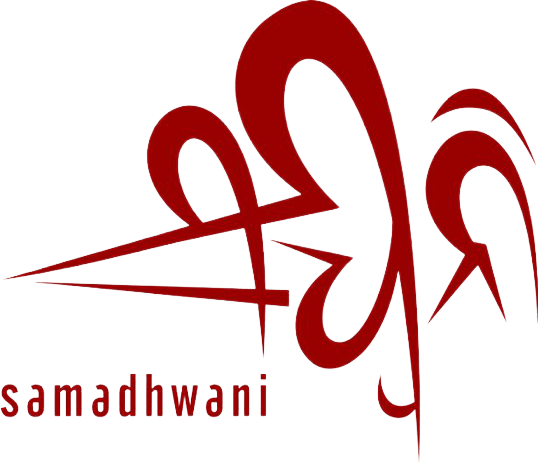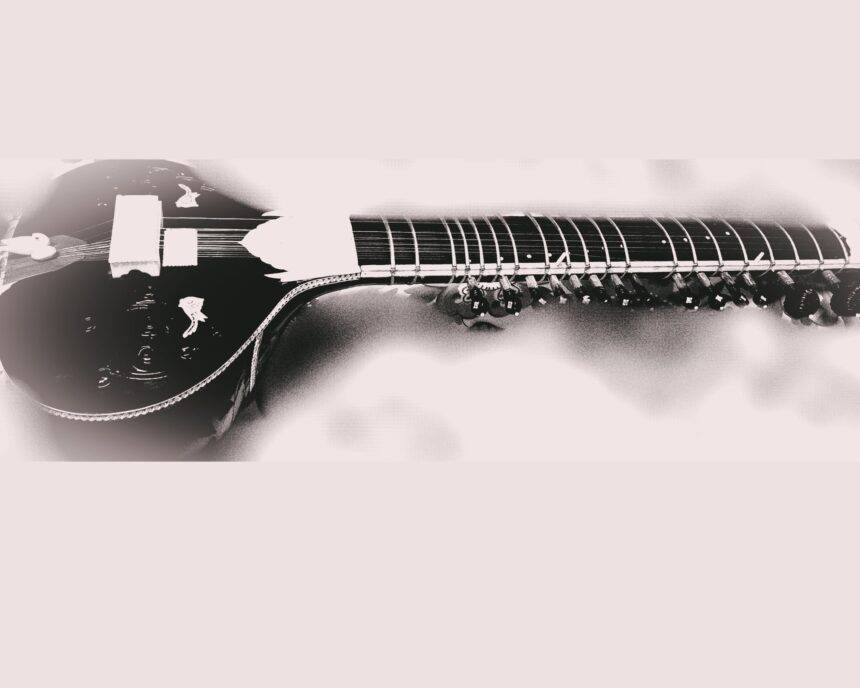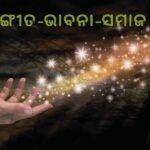Baba Allauddin Khan, a prominent figure in the realm of Indian classical music, stands as a highly accomplished teacher who has nurtured numerous extraordinary musicians throughout his lifetime. Amidst the myriad tales surrounding Baba’s teaching methods, it is his unparalleled contribution to the world of instrumental music that shines as a true treasure—a gift manifested in the form of his daughter, Annapurna Devi. Despite having a relatively brief span in her musical performing career, Annapurna Devi, affectionately referred to as Maa, is a shining testament to Baba’s exemplary teaching. Her journey serves as a prime illustration of the profound impact of Baba’s taalim (training) on his disciples.
Annapurna Devi, born as Roshanara Khan, was a renowned Indian musician and one of the most prominent figures in the world of Indian classical music. Despite her immense talent, Annapurna Devi chose to withdraw from the public sphere and never performed in concerts or recorded commercially. She preferred to focus on teaching and nurturing the next generation of musicians. Many well-known musicians, including Pandit Nikhil Banerjee and Ustad Vilayat Khan, were her students and credit her as a major influence on their musical development.

Annapurna Devi had a complex and significant relationship with her father, Allauddin Khan. Allauddin Khan was not only her father but also her guru (teacher) and mentor. He recognized her exceptional musical talent from a young age and decided to train her in the art of sitar playing. Under her father’s guidance, Annapurna Devi received rigorous training and imbibed the musical traditions of the Maihar Gharana. Allauddin Khan was a strict and demanding teacher known for his discipline and high standards. He imparted his vast knowledge and technical expertise to his daughter, molding her into a remarkable sitar player. Their relationship went beyond the usual father-daughter dynamic. Allauddin Khan had immense faith in Annapurna Devi’s abilities and considered her one of his most accomplished disciples. He entrusted her with the responsibility of carrying forward the musical legacy of the Maihar Gharana, which she did with great dedication. However, their relationship also had its challenges. Allauddin Khan’s uncompromising and exacting nature sometimes led to conflicts and tensions between them. Annapurna Devi struggled with the pressure of living up to her father’s expectations and the weight of his legacy. Eventually, these challenges contributed to her decision to withdraw from the public eye and stop performing publicly.
Despite any difficulties, the bond between Annapurna Devi and her father remained strong. She held great reverence for him as a musician and continued to deeply respect his teachings throughout her life. Their relationship was characterized by a deep musical connection and an unwavering commitment to the preservation and advancement of Indian classical music. Annapurna Devi’s relationship with her father played a crucial role in shaping her musical journey and influencing her artistic choices. Her father’s teachings and guidance laid the foundation for her extraordinary talent and contributed significantly to her development as one of the most revered sitarists in Indian classical music history.Annapurna Devi’s decision to lead a reclusive life added to her enigmatic persona and increased the mystique surrounding her artistry. She dedicated her life to preserving and propagating the rich traditions of Indian classical music, particularly the Maihar Gharana (school) established by her father. Annapurna Devi passed away on October 13, 2018, in Mumbai, India, leaving behind a lasting legacy as a master sitarist and a revered guru in the world of Indian classical music. Her contributions to the sitar and her profound musical insights continue to inspire musicians and music enthusiasts worldwide.
With the increasing number of women sitar players in today’s era, it becomes increasingly difficult to fathom the intense societal pressure that women historically faced when pursuing instrumental skills within a patriarchal society. However, even amidst such challenges, Annapurna Devi stands as a remarkable example. Her unparalleled training received from her father sets her apart, making her a true legend in the realm of Indian classical music.
The music world still wishes they could hear her more!!









